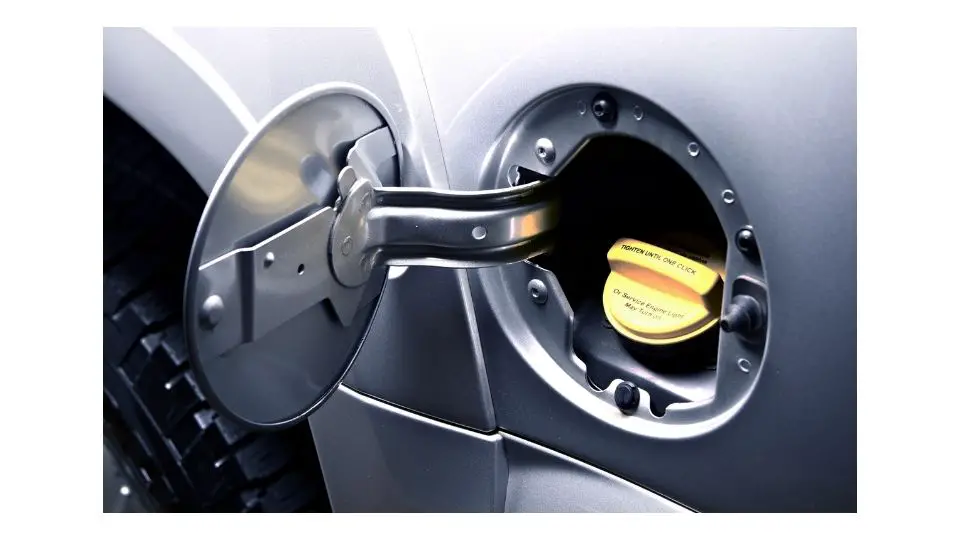We’ve seen it countless times in movies. We all know the scene, someone shoots the gas tank of a vehicle and the result is a large explosion. How realistic is this in real life though? Can a car gas tank explode? The material that makes up the gas tank depends on the make and model of the vehicle.
Gas tanks can be made out of plastic high-density polyethylene, steel or aluminum. Gas tanks can be made into many shapes. The shape makes it possible to save space and can improve crash safety.
Most cars use petrol or diesel and this also plays a huge part in what material is used for your gas tank. Gas tanks are made to fit well in cars and their positions may differ. Most gas tanks are located at the back, strapped up tightly to the undercarriage of your vehicle. Sometimes they are nicely positioned between the trunk and the axle.
Can a Car Gas Tank Explode?
In short, cars can catch fire but it is unlikely for them to explode. Car fuels are in liquid form which does not explode when set on fire but burn. There has to be a great amount of pressure, oxygen, gas, and fire for a tank to explode.
Car gas tanks are not pressured containers. They have seals that are designed to prevent pressure build up by releasing any excess pressure that may build up.
Since they are mostly made of plastic these days, the tank melts when it catches fire. The moment the tank melts the liquid escapes and burns. The non-plastic tanks are of metals not thick enough to create or hold pressure. Under pressure, they deform and crack easily. The liquid inside the tank can only boil but does not explode.
How do Car fires happen?
- Electrical malfunction: this can be because of a fault in the car wiring.
- Leaks: cars run on a lot of other fluids apart from fuel like engine oil or transmission fluid. A leak can happen in the car tanks, hoses or lines.
- Engines overheat: this can cause fluids in the car to overheat and spill to hot areas which can cause a spark fire.
- Collision: A hard hit can heating, fluid spills, and leaks; all of which could start a fire
- Factory defects: errors in the making of the car can cause fire problems.
- Poor maintenance: cars need to be checked regularly and also used right. Any broken parts have to be replaced with new good ones.
How do you know if your car is going to catch fire?
It is very important for car users to know the state of their car at all times. Drivers should pay attention to car warning signals and also:
- Smoke from the engine.
- Leaks.
- A loose/blown fuse.
- Sparks.
- Changes in fuel or fluid levels.
- Changes in engine temperature
What to do when a gas tank catches fire?
More often fires are caused by problems with a vehicles electrical wiring. The fuel system or even cigarettes left in the car can also cause fires. In the event your car catches fire:
- Stop the car and turn it off. (that is if you are driving)
- Get every person out of the car as fast as you can without panic.
- Move far from the burning car to avoid the fire and toxic fumes
- Call Important lines.
- Alert oncoming cars if possible. It’s not encouraged that you try to put out the fire yourself. Opening the hood or car doors increases the air supply and may increase the fire.
Is it OK to keep my Gas Tank Full?
In most cases you don’t want to run out of fuel in the middle of nowhere. Having your gas tank filled more than half full is a good thing. Keeping your tank full helps with the following:
1. Prevent condensation
This can happen in the empty part of your gas tank. When it freezes in cold times it can cause no-start conditions and ice your fuel lines.
2. Keep your fuel pump cool
The liquid fuel helps to cool the motor of your electric fuel pump. The pump sucks in air when the gas tank is causing it to heat up. That heat can cause your fuel pump to wear and not function.
The repair for this is costly, so it’s important to see it doesn’t happen.
3. Help keep dirt out of your fuel tank
Dirt can build up in the tank. Running low on gas can have that dirt can block your fuel filter. This can also lead to costly repairs. 4. Help avoid an emergency Having a full tank can help you not to run out and be stuck in the middle of nowhere. This is important when driving long distances too.
Can a damaged gas tank be repaired?
If you suspect problems with your gas tank, the best thing is to call a professional. Gas tanks should be inspected by a mechanic regularly to check for rust, leaks, or any damage. The good thing is most tanks can be repaired easily if damaged. Before you are able to make repairs:
- Access the tank,
- Find the source of the leak,
- Clean the area around it.
- Cover the leak with any fix substance or wield.

Robert Anderson is a world class motorhead who rebuilt his first carb at age 10, his first engine at age 15, and completed his first full hotrod build when he was just 18! Previously, he has ran a part warehouse, delivered pizzas, and managed the service department for a $20 million/year revenue dealership. Robert knows cars like few others and he is passionate about sharing his knowledge.

